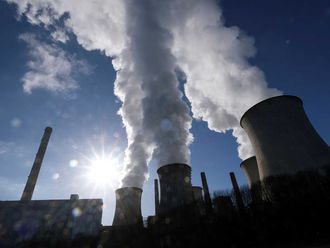London: With the US Federal Reserve set to raise interest rates and the European Central Bank mulling additional economic stimulus, the euro ought by rights to be falling against the dollar.
In fact, the correlation between the euro/dollar exchange rate and the gap between US and Eurozone bond yields, which was the main driver of the single currency earlier this year, has frayed.
Instead, the euro has been bolstered by an unwinding of risky carry trades, in which investors sell low-yielding currencies such as the euro in search of higher returns elsewhere, on the back of worries related to China.
As a result, the relationship between the euro and stock markets, whether European or global, is at its weakest in more than a decade, with the euro moving in the opposite direction to falling stocks and other riskier assets such as commodities.
The broad-based euro trade-weighted index has risen 1.3 per cent since China devalued the yuan on August 11, a move that injected volatility into global markets and drove many to bail out of these so-called carry trades.
The euro has moved almost in tandem with the safe-haven yen, which has also gained as stocks slid and prompted investors to seek refuge, leading some in the market to say the euro has emerged as a safety play.
Many analysts, though, are sceptical.
“Has the euro risen because of safe-haven flows? We don’t think so,” said Georgette Boele, an analyst at ABN-Amro.
“Investors had set up carry trades with the euro as the funding currency.” As risk sentiment declined, the euro rallied because those short bets against the single currency were closed,” she said.
Carry trades work best when borrowing is in a cheap and liquid currency that is either stable or gradually declining.
But in an uncertain economic climate, or when financial markets are in upheaval, these trades take a hit.
For most of 2015, a weaker euro and a higher US dollar has been one of the biggest macro themes. But this position has come under strain as investors have become less certain that the Fed will raise rates this year, given the recent market ructions and worries about global growth.
The latest Reuters poll suggested the euro would fall only slightly in the coming year, and saw only a one-in-three chance that it would fall to parity with the dollar or lower.
And while ECB President Mario Draghi pledged on Thursday to do more to support the economy, the impact of the bank’s monetary easing on the euro has been muted.
Traders said that, unless market volatility faded, the euro would resist the ECB’s easing measures and continue to benefit from the unwinding of risky bets.












